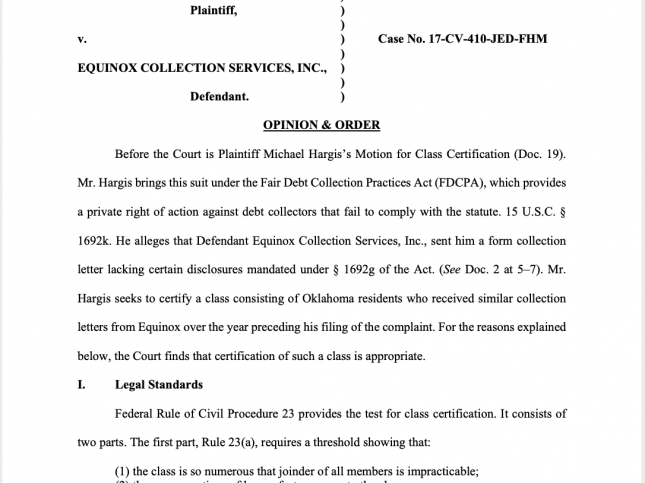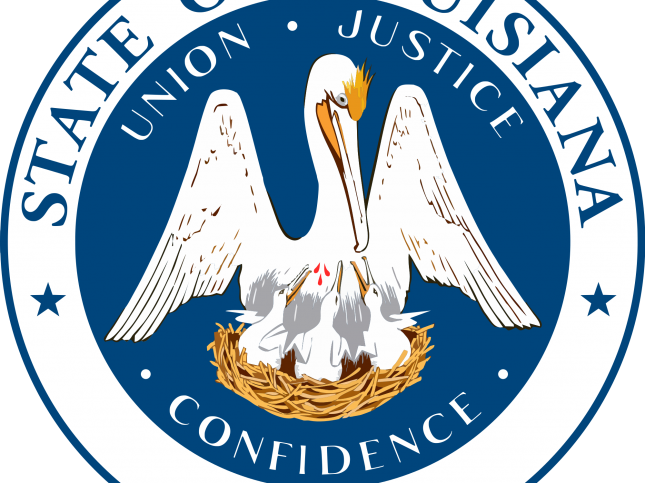Debt Collection Defense in Louisiana & Oklahoma Courts: Avoiding Judgment Through Proper Legal Strategies
Facing a debt collection lawsuit in Louisiana or Oklahoma can be daunting. However, understanding the legal process and the strategies available to you for your debt collection defense is essential. In many cases, your defense’s success hinges on scrutinizing how the plaintiff handled the service of process and recognizing whether arbitration must occur before a lawsuit is filed. Improper service and overlooked arbitration clauses can provide powerful defenses that may help you avoid an adverse judgment.
Importance of Proper Service in Debt Collection Lawsuits
Louisiana law requires that defendants be properly served with a citation and petition to ensure they are aware of the lawsuit and have the opportunity to respond. However, issues with improper service often arise in debt collection cases.
For example, in the case Beneficial Louisiana, Inc. v. Nash, 55 So.3d 803 (La. App. 2010)the court overturned a judgment because of discrepancies in the plaintiff’s documentation. The defendant argued that the account number listed was incorrect. The court reversed the judgment, remanding the case for further proceedings. This case highlights the importance of ensuring that all aspects of service are correct and that the plaintiff’s evidence is reliable.
What Constitutes Improper Service?
Improper service occurs when the plaintiff fails to follow legal procedures for notifying the defendant. Common issues include:
- Serving the wrong address: If service is attempted at an outdated or incorrect address, it can be deemed improper. The plaintiff must ensure that the address on the citation is current and accurate.
- Serving the wrong person: In some cases, the sheriff may serve someone other than the defendant. That could be a neighbor or another person not authorized to accept service. For instance, a recent case involved the sheriff serving a neighbor instead of the defendant, incorrectly marking the neighbor as an “overseer” of the property.
- Failure to attempt service at all known addresses: The plaintiff must attempt service at all known addresses. Failing to do so can lead to claims of improper service.
Legal Strategies to Challenge Improper Service
If you believe that service was improper, you can challenge it using a “declinatory exception of insufficiency of citation” under Louisiana Code of Civil Procedure Article 925(A)(1). This legal tool allows you to argue that the court does not have jurisdiction over you because of defective service. If the court agrees, it may dismiss the case or require the plaintiff to re-serve you properly.
Arbitration May Be Required Before a Lawsuit
Another critical aspect of debt collection defense in Louisiana involves arbitration clauses in contracts. Many consumer contracts, including credit card agreements, contain arbitration provisions that require disputes to be resolved through arbitration rather than in court. These clauses often state that the defendant cannot go to court, have a jury trial, or participate in a class action if a dispute arises.
Louisiana courts strongly favor arbitration. For instance, in Lakeland Anesthesia, Inc. v. United Healthcare of Louisiana, the court emphasized the strong presumption in favor of arbitration. The Louisiana Supreme Court has clarified this. If an arbitration agreement exists, the court must stay the trial until arbitration occurs.
How Arbitration Clauses Can Affect Debt Collection Cases
If you are facing a debt collection lawsuit and the contract includes an arbitration clause, the plaintiff may be required to pursue arbitration first. This can be a strong defense strategy, potentially delaying the lawsuit or leading to dismissal if the plaintiff fails to follow proper arbitration procedures.
To use this defense effectively, you must demonstrate that:
- A valid arbitration agreement exists: The court will examine whether the contract contains a clear and enforceable arbitration clause. Presenting the original contract that includes the arbitration provision can achieve this.
- The dispute falls within the scope of the arbitration agreement: You must show that the plaintiff’s claims are covered by the arbitration clause. Comparing the language of the arbitration agreement with the nature of the plaintiff’s claims typically accomplishes this.
In a case where a credit card company filed a lawsuit to collect a debt, the defendant argued that the case should go to arbitration because the original agreement included an arbitration clause. The court agreed and stayed the proceedings until the arbitration was completed.
Practical Steps to Avoid Judgment
If you are served with a debt collection lawsuit in Louisiana, consider these steps to help avoid a default judgment:
- Review the service of process: Check the details of how you were served. Was the address correct? Did the sheriff serve the right person? If there are any discrepancies, you may have grounds to challenge the service.
- Examine the contract for an arbitration clause: Look for any arbitration provisions in the original agreement. If an arbitration clause exists, you may argue that the case should be stayed and resolved through arbitration.
- File the appropriate exceptions: You may need to file a declinatory exception of insufficiency of citation, a dilatory exception of prematurity, or both. These legal tools can help you challenge the lawsuit and potentially avoid a judgment.
- Consult with a qualified attorney: Navigating Louisiana’s legal system can be challenging. An experienced attorney can help you identify potential defenses, file the necessary legal documents, and represent you in court.
Conclusion: Protecting Your Rights in Louisiana Debt Collection Cases
Debt collection lawsuits can be intimidating. Knowing your rights and the legal defenses available can make a significant difference. By challenging improper service and utilizing arbitration clauses, you can protect yourself from unwarranted judgments. Louisiana courts take these defenses seriously, and with the right strategy, you can navigate the legal system successfully.
Whether facing a lawsuit in a Louisiana or Oklahoma Judicial District Court or seeking to avoid a judgment, understanding how to leverage these defenses is crucial. If you’re unsure, seek the assistance of a skilled debt collection defense attorney who can guide you through the process and help you achieve the best possible outcome.
Photo Credit: Sabastian Pichler





